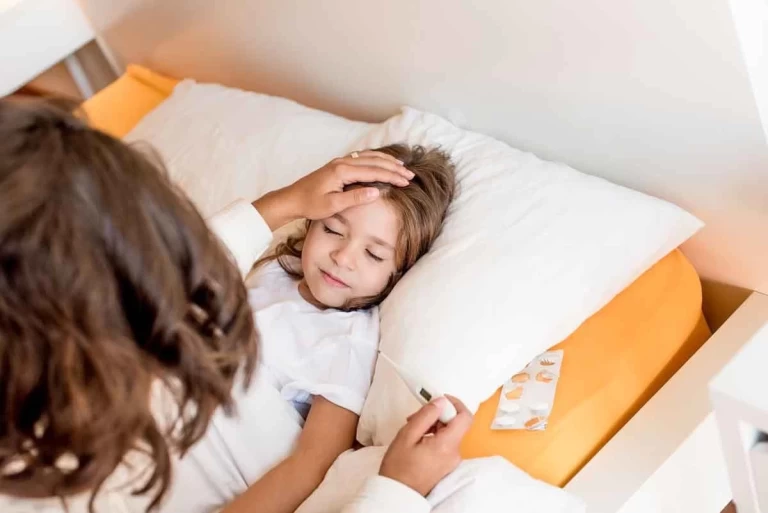
Tinnitus in children can sometimes be hard to identify. Unlike tinnitus in adults, children will not always know something is wrong with the phantom sounds they hear from tinnitus, especially if they were born with tinnitus as they may believe all other children hear the same phantom noises, and children will probably continue to ignore the signs of it.
Depending on the child’s age and their ability to express what they are feeling, you may be able to find out through them telling you; however, children who may have tinnitus and are unable to express themselves or believe the tinnitus they experience is normal can still be seen giving the following signs of tinnitus:
- Sensitivity to Noise - Children who have tinnitus may develop sensitivity to noise and want to avoid noisy situations.
- Severe Fatigue - The phantom noises that come from tinnitus in children can keep them up at night and make it difficult for them to rest.
- Poor Attention - Tinnitus can cause children to have a difficult time focusing. Phantom noises can attract the attention of your child and keep them from paying attention.
- Restlessness - If they are already having a difficult time sleeping, they can become quite restless in trying to become comfortable enough to rest.
- Tantrums - For tinnitus in children, tantrums may increase due to fatigue, being uncomfortable, and not fully understanding their symptoms of tinnitus.
- Irritability - A child who has tinnitus may show signs of irritability, where they become agitated and easily frustrated or upset. Tinnitus in children can be quite stressful on the child and irritability could be their response to the stress they experience.
- Holding Their Head or Ears - Tinnitus in children can cause headaches and sensitive hearing. If a child is holding their head or ears every now and then or regularly, they may be experiencing some symptoms of tinnitus.
- Anxiety or Depression - A child who has tinnitus may develop anxiety or depression. As they may not fully understand what tinnitus is, the symptoms of tinnitus could be quite stressful and spark their anxiety. Since those who tinnitus are also the only ones who can hear the phantom noises, the child may feel depressed from feeling alone in coping with it.
Some parents believe asking their children if they have tinnitus or are experiencing any of the phantom noises may make them more aware and raise their anxiety about the tinnitus, however, parents actually found the opposite to be true.
Confronting the child who may be experiencing tinnitus gives them reassurance that their issue can be helped and supported. In order to find out if your child is hearing any phantom noises, it is important to speak in a language they would understand. For example, the phantom noises may sound like a buzzing bee or a choo-choo train.
Children do not want to feel as if they are different or separated from others, so bringing up the topic of them having tinnitus can be a little scary for some parents to think about.
Keep in mind, it helps to bring up the topic of tinnitus in children as part of a “gentle conversation” – this means to be open and show your child you are interested in learning more about what they think about their tinnitus and how it makes them feel. Doing this will allow parents to have an opportunity to show their children their support and willingness to help them overcome it as a team.
How Tinnitus Affects a Child’s Daily Life
Tinnitus in children affects them differently than those who develop tinnitus as an adult. Because children are still learning by hearing, their speech perception could become very different and they may have a hard time picking up different tones as one is speaking to them as tinnitus can interfere with their focused listening.
Tinnitus may also affect a child’s performance in school. It is estimated 1 in 30 children are affected by tinnitus that affects their quality of life with many who have not found a way to explain it to their parents; this means there could be a child in every class that is affected by tinnitus.
As children begin to learn the basics of their knowledge, the symptoms of tinnitus can make it difficult for them to focus and understand what is going on within the classroom if they are too distracted by tinnitus phantom noises or the phantom noises have become too “loud” – which can result in a lower grade level and a weak foundation for their upcoming years of learning. In addition, there are cases in which children had to leave in the middle of class due to a headache that was caused by the tinnitus they were experiencing – leaving them to catch up on the lesson later.
As the phantom noise becomes worse, children may have a more difficult time sleeping. Lack of sleep will cause their school performance to drop as well, but also cause them to be inactive at times of play due to fatigue; this could lead them to become upset or depressed and feel as if they are left out of active activities.
Tinnitus may cause children to experience psychological distress, so it is important for them to have someone who is supportive and reassuring about what they are experiencing. In addition, stress may increase the severity of tinnitus, making the noises worse; because of this, it is important to teach children how to stay calm and handle stressful situations.
Just like tinnitus in adults, tinnitus in children can be from ear infections, noise exposure, or a head injury. If they are born with tinnitus, the birthing process might have injured a part of their body and move their upper cervical spine out of place.
Is There a Safe Treatment for Tinnitus in Children?
The good news is there is an all-natural treatment for tinnitus in children without the use of medications or wearable devices. As stated earlier, the cause of tinnitus in children can be due to ear infections, noise exposure, head injury, or a shift in the upper cervical spine.
Since this treatment is dedicated to fixing the causes of tinnitus rather than the symptoms, many patients have expressed huge improvements in their daily lives by the treatment greatly decreasing their tinnitus symptoms or eliminating the signs of their tinnitus completely.







Leave a comment